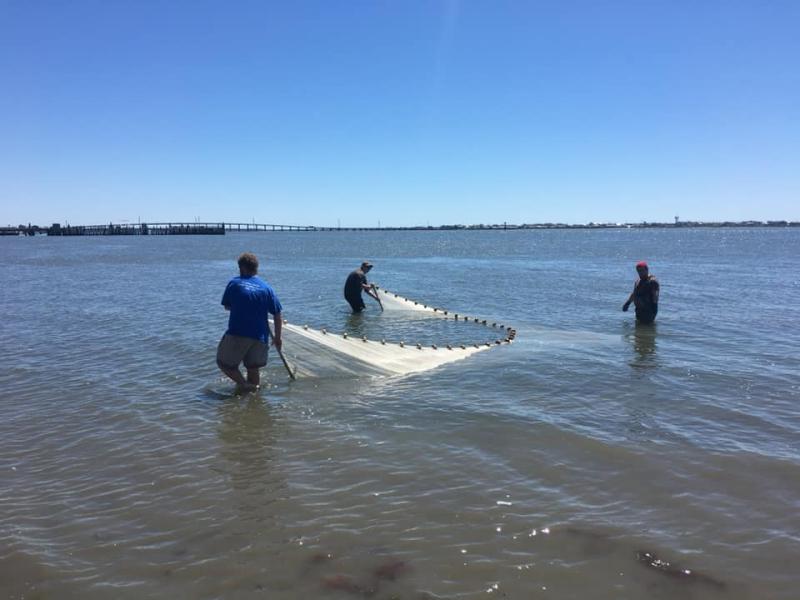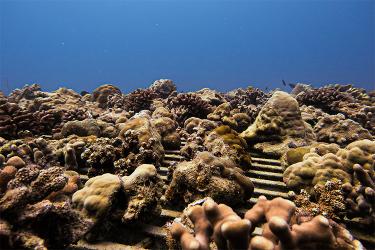In the coastal community of Morehead City, North Carolina, the Carteret Community College Aquaculture Technology program is helping meet the growing demand for new employees on the state’s working waterfronts. Classes emphasize applied marine sciences and mariculture (saltwater aquaculture). Salt water is plumbed directly from the ocean into the lab, located on Morehead’s Bogue Sound. The curriculum’s focus is on saltwater species such as oysters, clams, soft-shell crabs, and marine finfish like striped bass, flounder, and drum. But as Bryan Snyder, the program’s Aquaculture Operations Manager puts it, “We grow everything.”
An alum of the program, Snyder is now helping rising shellfish growers master sustainable marine trades and environmental science. The different levels of study build off of one another: Students can earn a one-semester-long certificate, a 1-year diploma, a 2-year associate’s degree, or attend the Shellfish Farming Academy.
The Shellfish Farming Academy is an 8-week curriculum that Snyder developed in collaboration with NOAA Sea Grant. It is a continuing education course that offers flexible scheduling for students who are also employed. It teaches all aspects of shellfish aquaculture production, including an introduction to farming techniques, the steps of obtaining a site, and how to start a business in North Carolina. Says Snyder, “The Shellfish Farming Academy opens our classroom to those who are seeking an aquaculture career, but can only study outside of regular business hours."
A Focus on Sustainability
In an industry with few training programs, the Carteret Aquaculture Program is an important workforce development tool. Snyder states, “Our industry is growing whether we participate or not. We are making sure it grows in a more responsible, sustainable way, by training a new generation of growers.”
Moreover, the program is building awareness of aquaculture species and methods that aren’t widely known. This includes raising ornamental marine finfish in recirculating tanks, or growing microalgae and zooplankton as live feed to support hatchery operations. This leads some students to alter their career path—some may arrive interested in shellfish, then change their focus to ornamentals or food fish.
From Farm to Table
The Aquaculture Technology students don’t sell their products, but they often provide refreshments for campus events. Program graduates, many of whom are already raising shellfish on their own farms, are frequently invited to alumni events, product demonstrations, and other occasions.
Fun Fact
The program shares a building with the college’s horticulture program, which sparked a collaborative effort to build an aquaponics system. Snyder explains, “We grow our striped bass in salt water but they can be acclimated to freshwater for aquaponics. The waste from our striped bass tanks can now be used to fertilize their plants.” This project was developed in partnership with North Carolina Sea Grant’s StriperHUB effort.
Sources:
- Aquaculture Technology at Carteret Community College
- Carteret Community College Aquaculture Program on Facebook
Sustainable Seafood from Tide to Table
The Tide to Table series profiles members of the aquaculture community, who provide valuable jobs and increase access to fresh, sustainably sourced American seafood. Aquaculture is more than seafood production. It is ecosystem stewardship, coastal communities, and economic opportunities.





